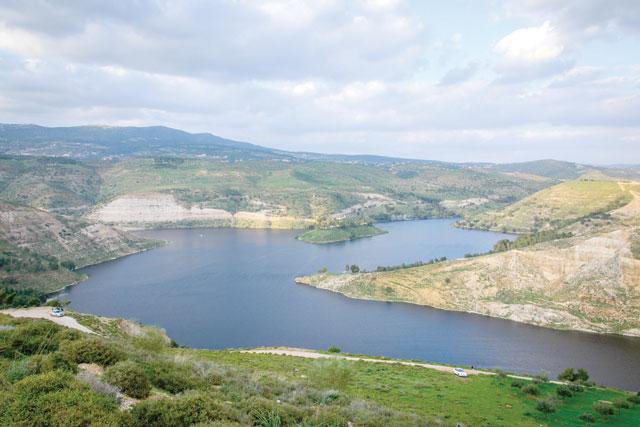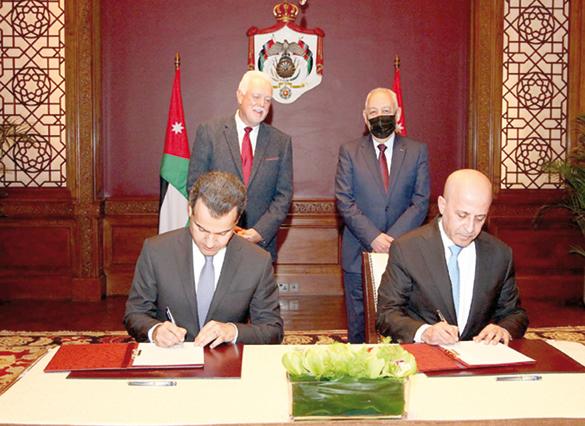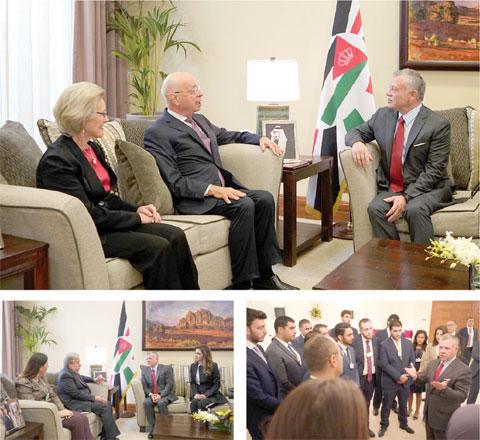You are here
‘Technology a tool to be used to help solve water crisis’
By Laila Azzeh - May 21,2017 - Last updated at May 21,2017
DEAD SEA – The role of technology in mitigating the acute shortage of water, which jeopardises the livelihoods of millions of people worldwide, especially in times of mass migration, was the highlight of a World Economic Forum (WEF) session that brought together experts on water and technology solutions.
Desertification, poor agricultural practices, scarce water resources and government water subsidies are some of the challenges facing the MENA region today, the panelists noted during a session held on the sidelines of the WEF under the title “Racing against the Clock: The Water Crisis”.
Fostering cross-border partnerships, introducing new technologies, improving the management of the region’s water resources and engaging the private sector in efforts to address water problems were among the experts’ recommendations.
“There is a need for a holistic and multi-sector perspective to be able to drive progress. Everyone has a role to play, whether it is through new technologies, funding, monitoring or implementation. Partnerships are a powerful way forward,” noted Sanjeev Chadha, CEO of Pepsi-Co International in Asia, Middle East and North Africa.
He noted that “as the largest beverage company and a significant food company, we have an important responsibility in the water sector. We set goals in 2006/2015 and were able to meet them. We improved our water efficiency by 25 per cent all over the world and 50 per cent in the region”.
“We also made a positive impact in India and Jordan in terms of water efficiency and treatment,” Chadha noted.
In Jordan, Pepsi-Co has managed to achieve its 20/25 goal in replenishing more water than it consumes in its manufacturing process over the last two years, according to its representative.
With 85 per cent of the region’s water resources going to the agricultural sector, due to poor agricultural practices, the experts called for improving transparency and accountability among decision-makers.
On the other hand, Fayez Husseini, managing director of Al Shorouq in the West Bank, highlighted the challenges Gaza is facing to secure water today.
“Gaza is in a very dire situation. In many ways, we view this as a testbed. We have to deal with the Palestinian Authority in Ramallah, which is the recognised authority, Hamas in Gaza and Israel, which is the overarching authority there, but they have security concerns,” he said.
Related Articles
AMMAN – The Arab Fund for Economic and Social Development (AFESD), in partnership with the World Bank Group (WBG), is scheduled to hold a hi
AMMAN — In the presence of Royal Court Chief Yousef Issawi, a cooperation agreement was signed on Tuesday between the Royal Hashemite Court
AMMAN — His Majesty King Abdullah on Saturday met with various heads of state, leading businesspeople and representatives on the sidelines o














